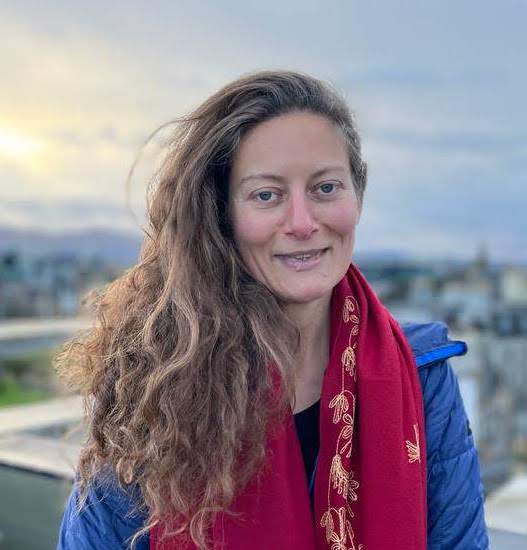Lucie enjoys working with communities to support them in creating positive social change (see podcast link where we discuss the challenges of this!).
She is motivated by a deep interest and curiosity in the relationship between people and their environment, which has taken her from craftwork in Scotland and Oceania, to agroecology in West and East Africa.
Her unusual combination of a BSc in pure mathematics and a PhD in social anthropology has proven useful in leading the Research Methods Support team for the Collaboration for Resilient Food Systems at IDEMS, engaging with local researchers leading Farmer Research Networks in West Africa.
What’s the most interesting project or problem you’re working on right now?
How to introduce and encourage agronomists to use transdisciplinary research methods. Many of the researchers I work with are leading innovative research with and for communities, but their academic training has not prepared them with the methodological tools to do this. I’m excited to be developing training materials and an example research study to enable researchers.
What’s the most challenging project or problem you’re working on right now?
I’m interested in how to help others develop critical thinking skills and self-reflexivity, which I believe are key competencies for data analysis and wider professional development. These personal development, or team building challenges, come into my work building up a team of research methods support assistants in the Sahel as part of the Collaboration for Resilient Food Systems program.
What role do you think tech can/should/could play in social impact?
It’s only in the last 100 years or so that we think of tech as electronic technology. If we take a wider perspective, technology encompasses all inventions that have been created to alter the human environment. Fundamentally, we invent things to make our lives easier.
At IDEMS, I engage with all types of technologies: from supporting researchers who are exploring the nutritional value of traditional food preservation techniques for fresh vegetables in rural Mali, to training postgraduate students in data analysis using statistical software.
Where is home?
I’m a dual national British and French and regularly travel between the two.


Leave a Reply